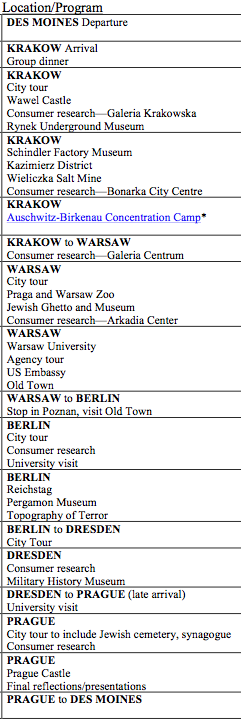Yes!
But you can use a carry-on bag, too.
A few weeks ago, Professor Crowe and I were lucky to be part of a group hearing a lecture by travel expert Rick Steves.
 |
| Professor Pisarski with Rick Steves in Des Moines, October 2014 |
Here is a link to Rick Steves' philosophy about packing for foreign travel.
https://www.ricksteves.com/travel-tips/packing-light
And here is a link to a USA Today article enumerating weight and size limits for luggage used for foreign travel. Remember, size of the luggage includes adding together the dimensions for length, width and height. If your luggage has spinners (not just rollers) then the dimensions have to include the size of the spinners (in other words, your suitcase's interior dimensions will be smaller).
http://traveltips.usatoday.com/baggage-requirements-international-airline-travel-12505.html
The article has some sponsored links that remind us about Cyber Monday deals, in case you don't have luggage sturdy enough for international travel.
Our next post will be about passports and travel documents.







